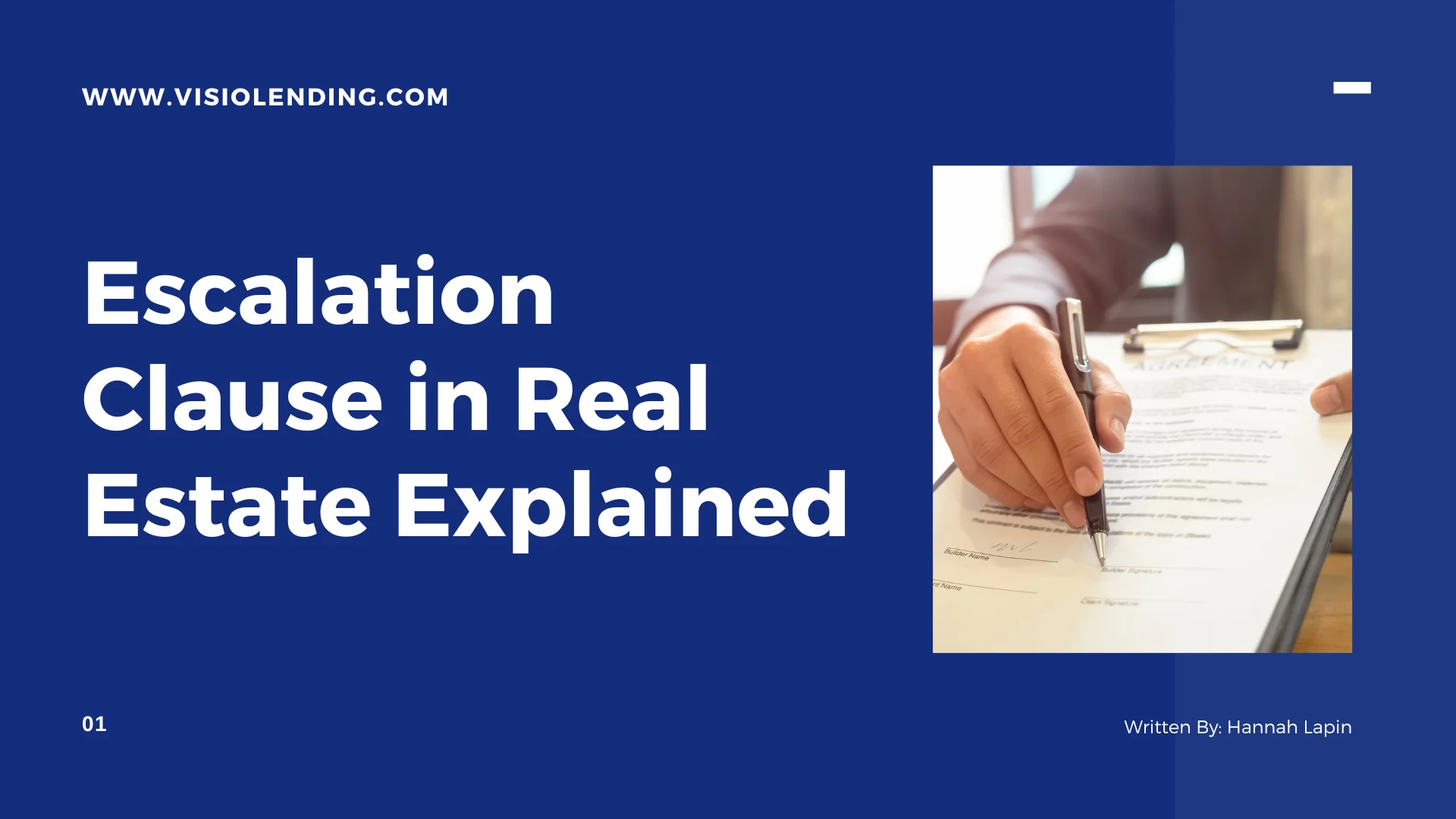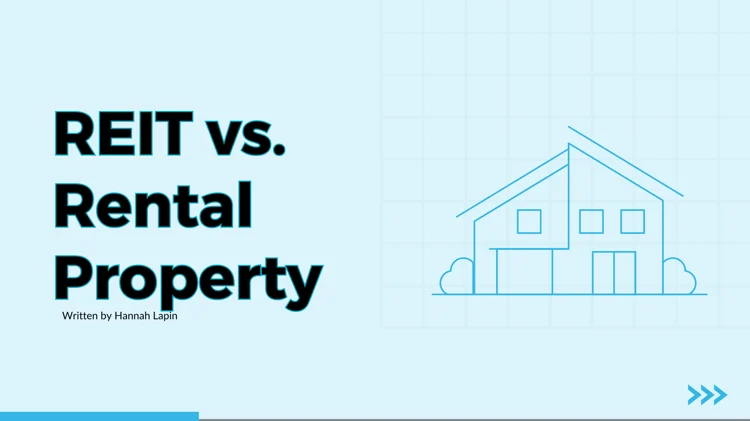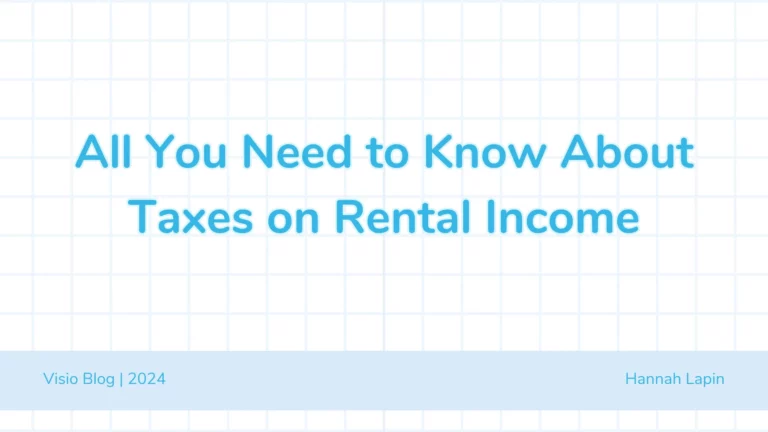What Is an Escalation Clause?
An escalation clause is a stipulation in a real estate contract that increases a buyer’s offer based on competing offers. Escalation clauses can make a buyer’s offer more competitive, oftentimes helping them secure their dream home.
When buying a home in a competitive real estate market, it’s a good idea to work with a real estate agent so you don’t miss out on options like this.
How Does a Real Estate Escalation Clause Work?
An escalation clause essentially tells the seller that you’re willing to pay over the asking price if they receive a higher competing offer. Escalation clauses include both the initial offer price and your final price, or price cap, that you’re willing to pay to win the sale. If the seller doesn’t receive a competing bid, your initial purchase offer price holds.
However, if the seller receives another offer with a higher price and they have accepted your escalation clause, you may still be in the race to purchase the property.
With an escalation clause in place, a competing offer will automatically increase your offer depending on the contract’s terms. The seller must show proof of a real bona fide offer to increase your final purchase price, so you don’t pay more unless someone else offers a higher price.
Including an escalation clause in your offer is easy. It simply involves adding an addendum to your initial offer. Work with your real estate agent to determine if an escalation clause is necessary to make your offer stand out.
It Doesn’t Guarantee That You’ll Buy a Property
It’s important to note that an escalation clause still doesn’t guarantee that you’ll get to buy the house. Even if the seller accepts your offer with an escalation clause, there are many things that can void a real estate deal.
A seller also doesn’t have to accept a contract with an escalator clause, even if it’s the highest price. Sellers can choose any potential buyer and offer they want for any reason.
For example, an all-cash offer may be more attractive to a seller than a contract with an escalation clause simply because the seller doesn’t have to deal with buyer financing. The seller’s process and preferences largely determine whose offer they accept.
When Should I Use an Escalation Clause?
The most common use of an escalation clause is to purchase a home in a competitive market. Many cities and counties today have limited supply and increasing demand, leading to an extremely competitive housing market. Sellers often receive multiple offers, which can make it difficult for buyers to purchase a home.
If you’re interested in buying a home that’s likely to get multiple offers, an escalation clause can help you win the sale without overpaying. Escalation clauses also show the seller that you’re very interested in purchasing their home, so much so that you’re willing to pay over the maximum amount to beat out competing offers.
Escalation clauses are also helpful in a bidding war. In a back-and-forth bidding war, buyers can offer more than they can afford simply to beat out other buyers. With an escalation clause, you don’t have to engage in this type of bidding.
Instead, you can set the maximum amount you’re willing to pay from the start of the offer. With an escalation clause, you’re also not locked into a higher price unless the seller receives multiple offers.
The National Association of Realtors (NAR) claims that more and more real estate agents are using escalation clauses to navigate today’s market. However, it’s common practice that the agent discuss the possibility with the listing agent before doing so.
An escalation clause doesn’t make sense if there aren’t multiple offers. Some sellers may also prefer a “highest and best bid” approach over offers with escalation clauses.
Escalation Clause Example
You’re shopping for a home and come across a property that has everything you want within your price range. The asking price for the home is $400,000.
You and your real estate agent decide to offer the full list price since you’re in a competitive market and the home is likely to receive multiple offers. However, in certain competitive markets, properties may sell for even higher than the list price. You really want the house, so you’re willing to offer more for it, but only if you need to.
So, your agent writes up an offer for $400,000 with an escalation clause of $5,000 increments to match or exceed a competing offer. You also set a maximum purchase price of $430,000. If the seller accepts your offer with the escalation clause and the property doesn’t receive any other offers, you’ll pay $400,000.
If the property receives an offer of $404,000, your escalation clause bumps your initial offer up to $405,000, making you the highest bidder. If another interested buyer offers $431,000, you’ll no longer have the highest bid price since your maximum offer was $430,000
Pros and Cons of an Escalation Clause for the Buyer
An escalation clause can be an excellent way to make your offer stand out amongst others, but it doesn’t make sense in every buying situation. Before considering an escalation clause in your offer price, it’s important to consider the pros and cons, which include the following.
Pros
A few pros of using an escalation clause include the following:
- More competitive offer – Contracts with escalation clauses can make an offer more competitive because the seller knows the interested buyer will increase their offer price to meet a competing offer.
- Shows sellers you’re a serious buyer – An escalation clause also shows sellers that you’re a serious buyer who’s ready to close the deal. This could give you preferential treatment over other buyers with similar offers.
- Prevents you from paying more than you have to in a competitive market – An escalation clause can help prevent a prospective buyer from paying more than they need to in a hot real estate market. An escalation clause automatically increases your offered price, but only if there are more parties involved with higher offers.
- Helps you purchase a home you really like – Buyers who find their dream home may include an escalation clause to ensure they get the sale.
Cons
A few considerations of escalation clauses in real estate include the following:
- Less privacy and negotiation power – Sometimes, being discreet can help you secure a better deal when buying a house. An escalation clause outlines exactly what you’re willing to pay for a property, often putting the power back into the seller’s hands. The seller knows how much the buyer has and will pay and could use this information to counter-offer.
- The deal could still fall through – Just because an offer includes an escalation clause with a higher amount doesn’t mean the financing will go through. Most lenders require the house to appraise for the loan amount, also known as an appraisal contingency.
- You could end up paying more out of pocket – Without a financing contingency in your purchase agreement, you could end up paying the difference between the appraisal amount and your highest offer. This is why it’s important to be detailed with your purchase agreement when using contingencies, like an escalation clause.
- Not all sellers will accept escalation clauses – Some sellers may prefer a bidding war without escalation clauses. Bidding wars don’t have a maximum price, meaning the seller could earn more than the maximum offer set in an escalation clause. A bidding war in extremely competitive markets can drive the purchase price significantly over the list price.
Should You Use an Escalation Clause?
Escalation clauses can give your offer a competitive edge in market conditions with multiple bids. They can also improve your chances of an accepted offer. Potential buyers who really want a home that’s for sale and who are able to pay more may want to include an escalation clause.
A few precautions can help avoid some of the downsides of escalation clauses. If you decide to use an escalation clause, setting a maximum price is important. Otherwise, the escalation amount could continue increasing if the seller continues receiving higher offers.
Including an appraisal clause can also help protect your real estate contract. Essentially, this means that you’re willing to offer over your list price to your maximum amount. However, your highest price cannot exceed the appraised value of the home. That way, if the home doesn’t appraise, you won’t have to pay the difference out of pocket unless you want to.
You could also put a time limit on your real estate escalation clause. Essentially, this means that you will pay more in a situation with competing bids, but only for a short period of time. This prevents you from having to raise your offer while the seller waits for multiple interested offers.
However, a seller may be less willing to accept an offer with an escalation clause and a time limit. Some real estate experts suggest working with a real estate attorney if you’re considering an escalation clause.
The final sale price you offer to pay with an escalation clause shouldn’t exceed the amount of financing you’re eligible to borrow. You should also have a sufficient down payment saved up in case your escalator clauses are activated with numerous offers.
How do you beat an escalation clause?
Competing against other real estate offers with escalation clauses can be difficult. Bidding higher is the best way to beat an existing offer with an escalation clause. In most cases, the seller’s agent won’t and can’t reveal the highest offer in an escalation clause, so you may have to guess.
You need an agent with plenty of experience in the real estate industry who understands the local market, so you can offer a price that’s competitive but not likely to be over the appraised value.
If a seller receives many offers with escalation clauses, they may reject them all and turn instead to a back-and-forth approach. Additionally, they may set a date and request all other interested parties submit their highest and best prices by that timeline. Escalation clauses only work when the seller is open to accepting them.
What triggers an escalation clause?
A higher offer triggers an escalation clause. Most real estate contracts are written up in a way that the offered price automatically increases if another buyer offers a higher price. The specified amount in which the pricing increases depends on the initial contract and is usually in specific increments.
Some agents may request proof of a bona fide offer, which means a real offer made in good faith. A copy of the offer is usually sufficient proof to activate an escalation clause.
Is there a maximum price for escalation clauses?
Most escalation clauses include a maximum price but don’t have to. It’s usually best to include your final offer in the clause to prevent paying more than you can afford or exceeding the home’s value.
Can you pull out of an escalation clause?
It’s difficult to pull out of an escalation clause as a buyer because it is essentially a contract. , Whether or not you will be able to get out will depend on your contract, and any financing or appraisal contingencies it contains. Similarly, sellers who accept offers with escalation clauses must follow the stipulations of the agreed-upon contract.






